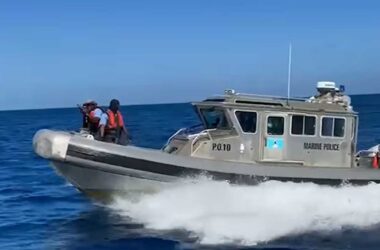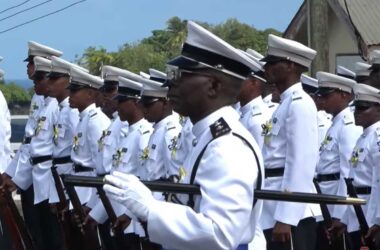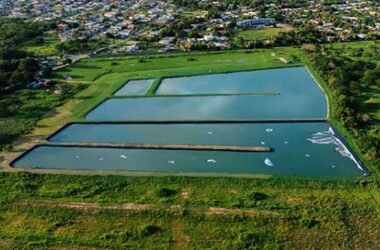THOSE who believe the Customs and Excise Department does not have the power to authorize entry and search under Section 94 of the Customs (Control and Management) Act will have to think again.
In a judgment that came out this week involving two companies that deal with the importation of used and reconditioned vehicles, as well as vehicular spare parts and body shells, the OECS Court of Appeal made it clear the Customs and Excise Department does have the right to do so and that such powers are contained in the country’s Constitution, sometimes described as the supreme law of the land.
Justices Davidson Kelvin Baptiste, Louise Esther Blenman and Michael J. Fay, QC all agreed that the Constitution gives the Department that right. They concurred that Section 40 of the Constitution gives Parliament the power to legislate for the country and that Parliament therefore has the right to legislate for the collection and management of duties and revenue. The trio concurred that this law-making power culminated in the enactment of the Customs Act, one of the legislations aimed at securing revenue and promoting an effective customs administration.
The judges referred to Section 7(2) (c) of the Constitution, stating that it enables Parliament to make laws which grant powers of search of premises or anything contained therein to administrative bodies for the purposes of revenue collection. They stated that Section 94(1)(a) of the Customs Act authorizes the seizure and detention of un-customed goods and that this falls squarely within the protection given by section 7(2)(c) of the Constitution.
“The Comptroller is empowered by section 94(1)(a) of the (Customs) Act to issue this document of authorization to customs officers to search premises where there were reasonable grounds for believing that an offence under customs laws was committed or that the premises were being used for the purposes of harbouring or concealing un-customed goods or articles,” the judges noted.
The justices also concurred that the Customs Act does not confer judicial authority on an executive body and therefore does not breach the separation of powers doctrine. Section 94(1)(a) of the Constitution, and by extension the Customs Act, is enabled by section 7(2)(c) of the Constitution.
This revelation about the powers of the Customs and Excise Department was the conclusion of the judges after hearing the case Fast Kaz Auto Supplies Limited and James Enterprises Limited brought against the Department nine years ago.
According to court documents on 15th October 2009, customs officers from the Customs and Excise Department, acting on the authorization of the Comptroller of Customs and Excise (“the Comptroller”), searched Fast Kaz’s registered office, as well as the private residence of one of its directors, Mr Curtis Hudson. This was done with a view to seize and detain any goods that may have been liable to forfeiture. At Mr Hudson’s private residence, the customs officers seized, removed and detained documents belonging to Mr Hudson. At the registered office, the customs officers seized, removed and detained documents relating to the business and four vehicles.
On 14th October 2009, customs officers acting on the written authorization of the Comptroller entered the private residence of Mr Bryan James, a businessman and an associate of James Enterprises Limited. This was done based on information received that Mr James and James Enterprises Limited imported vehicles which were declared at values that were lower than the actual purchase price. The customs officers seized, removed and detained four vehicles and a number of documents and records relating to the business and Mr James.
On 2nd November 2011, Fast Kaz and Mr Hudson filed a claim in the High Court, claiming damages for trespass to property and goods, detinue, breach of statutory duty, interest and costs. On 11th June 2012, James Enterprises and Mr James also filed a claim in the High Court, claiming damages for trespass, costs and interest.
On 28th October 2018, the High Court delivered its judgment however the appellants, mainly the attorney general, were dissatisfied with the decision of the judge and appealed to the Court of Appeal, challenging the learned judge’s reasoning and conclusion.
The main issues that arose for determination by the trio of judges were whether the Comptroller of Customs had power to authorize entry and search under section 94 of the Customs (Control and Management) Act without a warrant issued by the court; whether the exercise of powers by the Comptroller of Customs pursuant to section 94 of the Act breached the separation of powers doctrine; and whether the Comptroller of Customs and, by extension, the customs officers exercised the powers conferred by section 94 of the Act in bad faith.






![Amy Stephen [Photo credit: Community Tourism Agency]](https://thevoiceslu.com/wp-content/uploads/2026/01/Amy-Stephen-feat-380x250.jpg)







